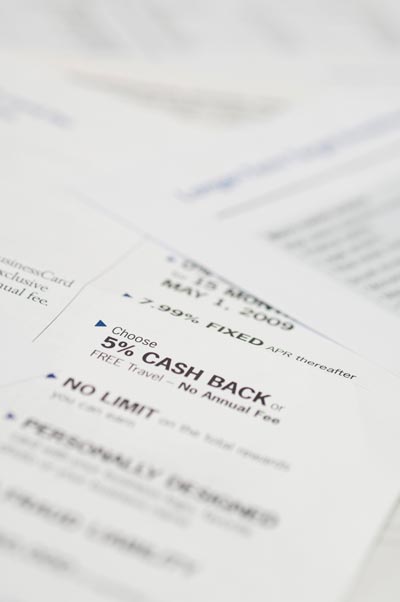Cryptocurrencies are an alternative to fiat currency that use advanced cryptography techniques and they allow for secure transactions on a blockchain, or distributed ledger. This technology prevents double-spending by ensuring that transactions are recorded in a secure way and crypto currencies can be traded for a variety of different things.
Physical high-value commodities such as gold and silver are considered to be excellent alternatives to fiat currency. These commodities have been around for centuries and are easily portable. Unlike fiat currency, these physical assets are not tied to a government, so they don’t lose value. Another great benefit of these commodities is that they are divisible and durable.
The popularity and adoption of digital currencies is growing. As a result, investors should consider all their options. This will allow them to make informed decisions regarding their investments. This article will give you an overview of the main alternatives. The following discussion is not comprehensive, but will serve as a starting point.
Where to start
If you are a beginner to cryptocurrency and are unsure of where to invest, consider getting a financial advisor to help you get started. While some financial advisors are comfortable with digital assets and blockchain technology, they aren’t necessarily experts in this area. To be truly effective in their role, advisors should be familiar with custody, taxation, and trading. and shoud be able to discuss the value of a crypto asset in terms of its value, so do find out if they have experience in crpyto investing. While the crypto market is considered to be speculative and volatile, getting a financial advisor to help you invest in crypto is an excellent way to protect your money and make sure you get your money’s worth.
Financial advisors have traditionally been hesitant to incorporate cryptocurrency into their client’s portfolios. However, a recent survey by Cerulli Associates found that 45% of financial advisors expect to use crypto in the future. Another 10% are currently using cryptocurrency, primarily due to requests from clients.
They can also help you understand cryptocurrency and its tax implications and the different types of investments available to you to help you reach your financial goals. They can also help you decide if investing in crypto is right for you. However, it is crucial to remember that you should invest only with the amount of money you can afford to lose.
A financial advisor is also aware of the risks and hazards of investing in cryptocurrencies. Some of the potential risks include the possibility of loss of capital and tax reporting obligations. Depending on how your crypto investment performs, a financial advisor can advise you on the best strategy and will also be able to help you determine whether it fits into your overall portfolio and if it will help you or hinder your financial goals.
Investing through a broker
Investing in Crypto through a broker offers a range of financial services. A broker will fill your order by specifying the type of coin and amount you want to purchase. The broker will then deliver the coins to your private or web wallet. It’s important to do your research and choose a broker that is regulated by a regulator.
A good broker will be able to offer competitive commissions and fees. You’ll also have access to specialized resources relating to the digital currency. While a broker can be a valuable tool in investing, you might want to consider diversifying between multiple brokerages. This can help you keep your low-risk investments separate from those with higher-risk investment requirements.
There are several brokers that offer cryptocurrency trading. Robinhood is one of the most popular brokers. Its onboarding process is fast and simple. It’s also important to note that you don’t need to buy a whole coin to trade it. You can invest as little as $1. The most popular crypto coins for trading on Robinhood are bitcoin, Ethereum, Litecoin, and Dogecoin. The platform also offers crime insurance and zero-percent commission fees.
Transaction fees are another key consideration to keep in mind. Most brokers charge around 0.5 percent of the value of your crypto assets. Depending on the platform, this can add up. Some brokers also charge fees for deposits and withdrawals although these fees vary by currency and exchange and are usually relatively small. Moreover, some brokers offer margin trading, where you borrow funds from the exchange. Margin trading, however, carries additional fees and interest.
It’s important to note that investing in crypto has many risks. As with any investment, it’s crucial to understand your risk tolerance and investment goals. Ultimately, you should decide on a platform that suits you best. And don’t forget to take care of your safety. You never know when hackers may target your personal information.
While investing in crypto can be a good way to diversify your portfolio, you should still take precautions to minimize risks. Remember, the crypto market is volatile. It’s also important to keep in mind that you don’t want to invest any money that you can’t afford to lose. You should also use a good antivirus software to protect yourself from online threats.
Investing directly in crypto
Investing in cryptocurrency can be a risky endeavor, which can be seen form the volatility it has experience this year. Experts recommend investing small amounts over a long period of time. You should also monitor the performance of your investment as compared to larger companies’ stocks, cryptocurrency may fluctuate more. Investing small amounts in crypto will allow you to keep a close eye on your investments.
One way to invest in crypto is to buy shares in a crypto index fund. These funds hold a variety of cryptocurrencies and then sell shares to investors. The shares of the crypto index fund can fluctuate in value relative to the value of the underlying digital assets. The price of your shares depends on demand and supply.
You can also invest directly in crypto by investing in companies that generate value from blockchain technology. While there are a number of risks with this approach, it is possible to generate significant returns. For instance, a single Bitcoin was worth only $414 in early 2016, and hot a high of $61k in Oct 2021. Such a return is nothing to sneeze at. In addition, you can still make noticeable profits by playing the market sensibly.
In addition to investing directly in cryptocurrency, you can also invest in the infrastructure of the crypto industry. This includes mining companies, exchanges, and blockchain developers. Another way to invest in cryptocurrency is to speculate on future cryptocurrency futures. By trading in cryptocurrency futures, you can hedge your bets on the direction of the asset. By making a primary trade in one direction and a secondary trade in the opposite direction, you can avoid losses and maximize your returns.
However, investing in cryptocurrency requires research. Successful investors only invest in assets they understand and can afford to lose. Furthermore, you must carefully consider the percentage of your portfolio that you can allocate to it. Remember that a larger percentage of your portfolio will be at greater risk, but it will also yield higher returns.

 How much will an accountant charge to do my business tax returns and personal tax return services?
How much will an accountant charge to do my business tax returns and personal tax return services?